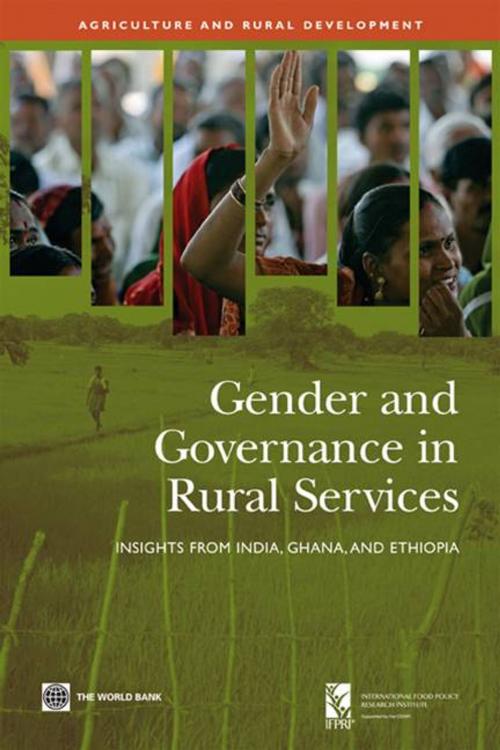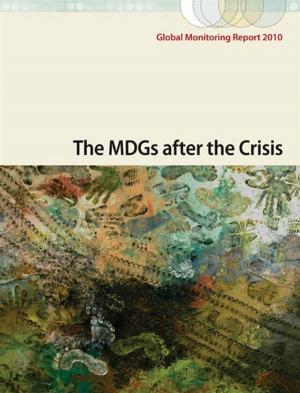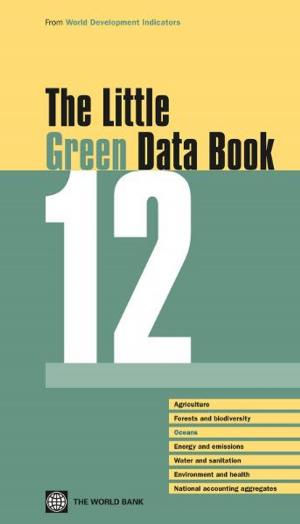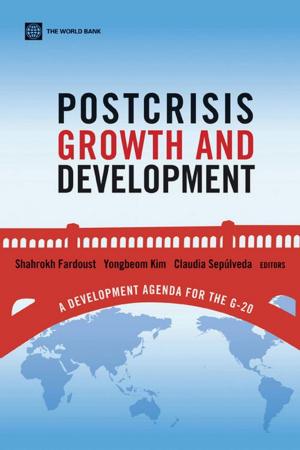Gender And Governance In Rural Services
Nonfiction, Social & Cultural Studies, Social Science, Gender Studies| Author: | World Bank | ISBN: | 9780821376584 |
| Publisher: | World Bank | Publication: | January 25, 2010 |
| Imprint: | Language: | English |
| Author: | World Bank |
| ISBN: | 9780821376584 |
| Publisher: | World Bank |
| Publication: | January 25, 2010 |
| Imprint: | |
| Language: | English |
The book "Gender and Governance in Rural Services: Insights from India, Ghana and Ethiopia" provides policy-relevant knowledge on strategies to improve agricultural and rural service delivery with a focus on providing more equitable access to these services, especially for women. It focuses India, Ethiopia, and Ghana, and focuses on two public services: agricultural extension, as an example of an agricultural service, and on drinking water, as an example of rural service that is not directly related to agriculture but is of high relevance for rural women. It provides empirical microlevel evidence on how different accountability mechanisms for agricultural advisory services and drinking water provision work in practice, and analyzes factors that influence the suitability of different governance reform strategies that aim at making service provision more gender responsive. It presents major findings from the quantitative and qualitative research conducted under the project in the three countries, which are analyzed in a qualitative way to identify major patterns of accountability routes in agricultural and rural service provision and to assess their gender dimension. The book is intended for use by a wide audience interested in agricultural and rural service provision, including researchers, members of the public administration, policy makers, and staff from nongovernmental organizations (NGOs) and international development agencies who are involved in the design and management of reform efforts, projects, and programs dealing with rural service provision.
The book "Gender and Governance in Rural Services: Insights from India, Ghana and Ethiopia" provides policy-relevant knowledge on strategies to improve agricultural and rural service delivery with a focus on providing more equitable access to these services, especially for women. It focuses India, Ethiopia, and Ghana, and focuses on two public services: agricultural extension, as an example of an agricultural service, and on drinking water, as an example of rural service that is not directly related to agriculture but is of high relevance for rural women. It provides empirical microlevel evidence on how different accountability mechanisms for agricultural advisory services and drinking water provision work in practice, and analyzes factors that influence the suitability of different governance reform strategies that aim at making service provision more gender responsive. It presents major findings from the quantitative and qualitative research conducted under the project in the three countries, which are analyzed in a qualitative way to identify major patterns of accountability routes in agricultural and rural service provision and to assess their gender dimension. The book is intended for use by a wide audience interested in agricultural and rural service provision, including researchers, members of the public administration, policy makers, and staff from nongovernmental organizations (NGOs) and international development agencies who are involved in the design and management of reform efforts, projects, and programs dealing with rural service provision.















